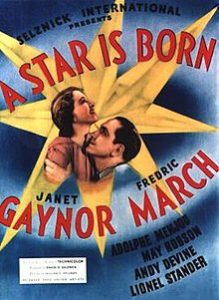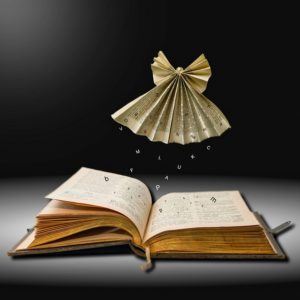 I’ve never been big on New Year’s resolutions. I find them a little depressing, knowing I’ll likely never keep them. I don’t know what it is about the word “resolution,” but it has such a negative connotation for me that I always avoid them. I prefer to set goals. Having goals sounds way more positive to me than making resolutions. Goals are things you can work toward, resolutions are things you have to keep.
I’ve never been big on New Year’s resolutions. I find them a little depressing, knowing I’ll likely never keep them. I don’t know what it is about the word “resolution,” but it has such a negative connotation for me that I always avoid them. I prefer to set goals. Having goals sounds way more positive to me than making resolutions. Goals are things you can work toward, resolutions are things you have to keep.
I am a member of GoodReads, a social media platform centered around books and reading. When I first joined, I primarily used GoodReads as a way to keep track of the books I’ve read and the titles I wanted to read. But several years ago, GoodReads start challenging it users to a yearly reading goal in January of the new year. Participants can set the number of books they wish to finish reading by the end of December, and a member’s homepage will track their progress toward their goal. I’ve set goals every year since this feature was introduced, and mostly met them. This year, I was very ambitious and hoped to read 25 books. I might fall a few short of that goal as I’ve only read 22 and December is halfway over!
Even if I don’t finish all 25 books by January 2020, I now have a lovely record of everything I’ve read over 2019. As I look back, I can see a few trends. First of all, judging by my 5 star rating system, I’ve read a lot of fantastic books this year. I’ve also discerned a few patterns in my reading during my review. Here are a few books and reading trends I can recommend:
2019 is officially the Year of the Memoir for me. I’ve never been a nonfiction reader and rarely pick up anything but fiction. I would love to say that I purposefully started out 2019 with a desire to try new genres and expand my reading horizons, but I suspect that convenience is what led me to the memoir. The library’s popular Overdrive e-book service has a wonderful feature in its Libby app called “Available Now,” which highlights all titles that are immediately available for download. I was scrolling through this list, desperate to find an audiobook to keep me company on a long drive to New Jersey. I found Amy Poehler’s Yes, Please! and was intrigued. I’d read Tina Fey’s spectacular Bossypants years ago and figured I’d love anything Tina Fey adjacent, especially anything by Poehler, her hilarious work wife and comedic partner in crime.
Yes, Please! is comprised of short vignettes from Poehler’s life as a star on Saturday Night Live, musings on lessons in her personal life, and listicles of life advice. I love Amy Poehler but her disjointed writing along with the disclaimer at the beginning and throughout most of the book that “writing is hard” lets me know she’s not a writer. She’s a great sketch comedian but she ran out of ideas in this book and didn’t know how to string the ones she did have together. The book is filled with amazing anecdotes and guest appearances but that is the limit of its charm. The lists, advice, and many of the insights Poehler provides are somewhat boring and trite, even when read excellently by the author herself.
The two highlights of my excursion into memoir territory were Becoming, by Michelle Obama and Educated, by Tara Westover. I will be honest and say that I was sure Becoming was not worth the hype before I read it. Once I did read it, I completely understood and became part of the hype. The combination of Mrs. Obama’s raw honesty, touching memories, and no-nonsense straight talk had me devouring all 428 pages. Her ability to weave life lessons in with her story without seeming preachy was endearing and relatable, even when our lives had nothing in common. I was especially moved by her surreal and intense recollections of her time as First Lady and her determination to keep growing as a person.
Educated by Tara Westover is another amazing memoir, albeit in a completely different way. Westover narrates her dark and grim childhood struggles to survive and educate herself as a member of an off-the-grid family in rural Idaho. Her father forbids his children from attending public school, fearing any government involvement in their lives, and Tara is barely homeschooled by her mother and older siblings. She perseveres and gets into college, eventually becoming a Gates Scholar at Cambridge University. But make no mistake; this is a tough read. The book is a series of episodes illustrating the author’s terrible family experiences, with her attempts to physically escape and spiritually make sense of herself and the people she loves. Westover’s descriptions of the many accidents, injuries, and physical and psychological abuse are unflinching and horrifying. Every time she seems to find some hope of separating herself emotionally and physically from her family, she gets sucked back in. But her journey of learning what it means to be educated is not a straight line and perfectly illustrates why the struggle to be yourself is truly worth it, even at a terrible cost.
Reviewing my year in books has revealed another trend: I listen more than I read. I’ve become a real convert to audiobooks this year. Typically, I only read before going to bed. This really limits my reading time and I was frustrated by my slow progress. Audiobooks have allowed me to keep “reading” while doing other mundane tasks like running errands or folding laundry. Listening to audiobooks has also allowed me to tackle longer books than I would normally read. Finally, I’ve learned the importance of a good narrator. Someone with a good voice and ability to vocalize multiple characters is a necessity in the audiobook experience.
Pachinko, by Min Jin Lee and The Priory of the Orange Tree, by Samantha Shannon offer two different but excellent audiobook experiences. Pachinko is the multi-generational story of a Korean family that relocates to Japan in the 1930s and joins the second class citizenship of Zainichi, ethnic Koreans living in Japan. This move affects every member of the family in different ways, and some adapt better than others. Allison Hiroto is a fantastic reader, seamlessly transitioning from character to character without her performance seeming forced or clunky.
The Priory of the Orange Tree is a fantasy novel that features two interwoven narratives, one from the East and the other from the West. Each storyline faces the growing threat from the Nameless One, a terrible slumbering dragon that threatens to end life as we know it unless characters from each part of the world can work together. There are the usual suspects of a fantasy novel: assassins, dragons, and magic. But this book dispenses with the thinly veiled Puritanical ideals of most fantasy tropes and instead presents a feminist narrative that champions diversity.
Looking over my reading list from 2019 has been informative and nostalgic. I’ve read some really great books and discovered new genres. As I start to make my list for 2020, I now have a better idea of where I’ve been and where I should be headed with my reading. If you’ve never kept a reading journal or list, I highly encourage you to try it next year. You may find keeping this New Year’s resolution is easier and more fun than you think.
Kate Tigue is the Head of Youth Services at the Morrill Memorial Library in Norwood, MA. Look for her article in the December 12, 2019 issue of the Transcript and Bulletin.




